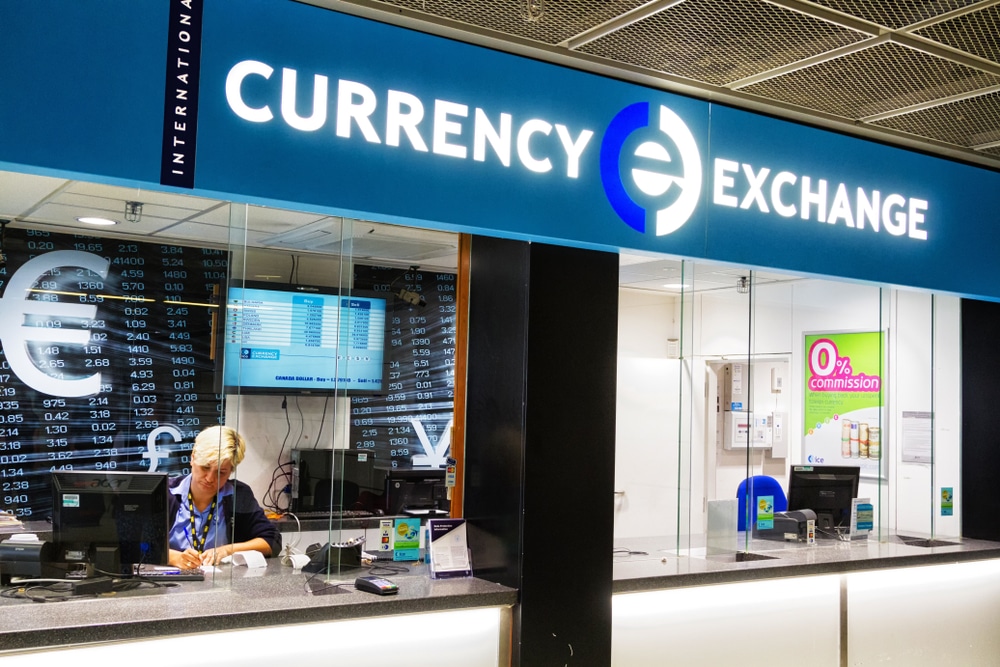When you travel to another country, you may get to a point where you need to exchange currency. This process can be relatively expensive if you do not know the tricks. In this guide, we will discuss the recommended and not recommended places for exchanging currency.
Exchange Fees Explained
Exchange fees have a massive role in the financial landscape. They are charges imposed by currency exchange service providers or financial institutions for swapping currencies.
📈🤖 Unlock unparalleled trading potential with GPT Stocks Master AI! Revolutionize your portfolio, leveraging real-time insights and predictive analytics. Don’t miss out – step into a world where precision and profitability meet. Ready to transform your trading journey? Click “Master My Trades” now for your exclusive access! ✨🚀📊
Facilitating the exchange of currencies carries significant costs. For example, financial institutions have to invest heavily in a secure and proper infrastructure to offer currency exchange services. That infrastructure must be able to use the right exchange rates all the time.
Are exchange fees part of banks’ revenue? Yes! The fees collected when swapping currencies are treated as part of the income of a particular financial institution.
Recommended Places for Exchanging Currencies
Here are some of the best places you can convert currency at affordable fees:
- Credit Unions and local banks are known for offering the best exchange rates.
- Online currency converters and bureaus also provide convenient and affordable currency exchange services.
- Major banks, like Chase, offer good exchange rates when using their ATM cards overseas.
Pro tip: If you do not have time to exchange currency before traveling abroad or perhaps you do not like carrying cash, use an ATM near the airport when you arrive in a foreign country.
Using Cash vs. Credit for Foreign Transactions
You no longer need to carry traveler’s checks in 2024 while traveling abroad. Instead, you can get a no-foreign-fee credit card from banks like Capital One, Bank of America, and Chase. This means you will pay for items in the foreign country without incurring any foreign exchange fee.
However, using your credit card for a cash advance in order to receive another currency isn’t advisable. That is because you will incur a high cash advance fee and interest rate, which usually begins accruing immediately.
It is worth noting that some countries do not accept credit cards. So, before traveling, check if your destination country accepts the cards.
More Travel Tips
When planning to travel abroad, consider informing your bank or credit card issuer about your plan. That way, in the event you use your credit card abroad, your bank won’t limit access to your account because of fraud concerns.
Moreover, shun away from paying in USD while abroad, even if the merchant offers to exchange them for you. That’s because they will convert your USD to another currency at an exchange that is disadvantageous to you.
Worst Places to Convert Currency
Airport kiosks – First of all, do not mistake these for airport ATMs. Airport kiosks have the worst foreign exchange rates and usually charge significant fees.
Prepaid debit cards and traveler’s checks – These two attract massive transaction fees. Moreover, when it comes to security, they only add a small benefit compared to cash. Note that prepaid debit cards come with ATM-use fees.
Tourist areas – While tourist areas may offer convenience, they usually charge high foreign exchange fees.
Remote locations – In a place that is less visited, there is a high chance that exchange options are limited. Therefore, currency exchange providers may use the lack of competition to their advantage to charge high fees.
When to Convert Currency
It is advisable to convert currency during business days. But why is that? The currency markets are usually closed on holidays and over the weekends. With no active trading, the liquidity in the market is very low, and a situation like this leads to considerably wide bid-ask spreads, which makes it expensive to carry out currency transactions.
Conclusion
If you plan to exchange currency abroad, checking the conversion rates before traveling is likely to save you some money. If possible, stick to a no-transfer-free credit card while paying for items abroad. Also, do not exchange currency at any airport kiosk unless it is the last resort.

